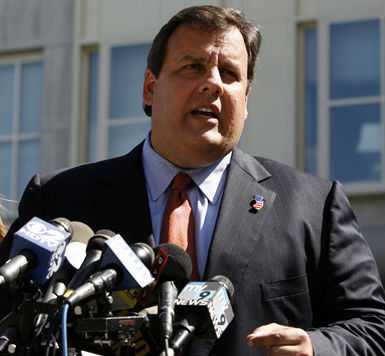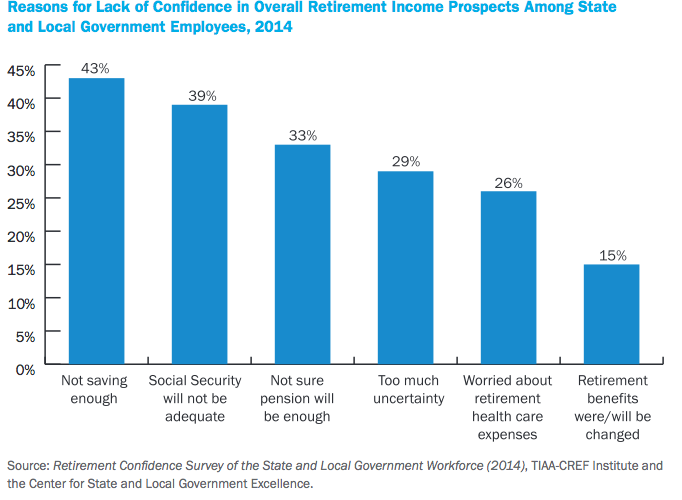New Jersey Gov. Chris Christie unveiled a series of pension reform proposals at his budget address yesterday.
But he’s taking his cues from a just-released report from his pension commission, which he set up in the summer of 2014.
Christie acknowledged in mid-2014 that future pension changes would likely mean benefit cuts for workers. Now, we are getting more details about the specifics of the reforms Christie and his panel have in mind.
The five key pillars of the pension reform proposal, summarized by NJ.com:
1. Frozen Plan
The current pension plan would be frozen. Retirees would continue to receive their benefits, though without cost of living adjustments. Active employees would no longer accrue benefits under that plan.
2. “Cash balance” plan
The state would create a new “cash balance” plan, which is considered a hybrid between defined-contribution and defined-pension plans. Workers’ benefits are shown as a cash balance, funded by employee and employer contributions and investment returns, but they can take their payout as a lifetime annuity.
3. Health care premium change
Employees would pick up a larger share of their health care premiums, and health care coverage would be less generous overall. On average, employees pay 18 percent of their health care premiums. Under the proposal, that would increase to 25 percent, though higher-paid employees pay more. State and local governments pay, on average, 95 percent of the total cost of health care coverage, but the proposal calls for new health care plans that reduce the employer cost to 80 percent.
4. School plans
Local school districts would take on local education employee retirement benefits, which are currently paid for by the state, and the cost of the new cash balance plan. The commission estimates the savings from the health care cuts would more than cover those new responsibilities.
5. Constitutional amendment
Lawmakers would be asked to pass a proposed constitutional amendment that would appear on the November ballot and guarantee public employees adequate pension contributions from the state.
The commission’s report can be read here.
Cover photo credit: Walter Burns [CC BY 2.0 (http://creativecommons.org/licenses/by/2.0)], via Wikimedia Commons









